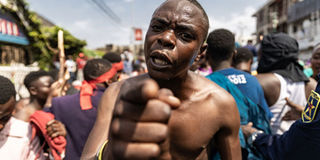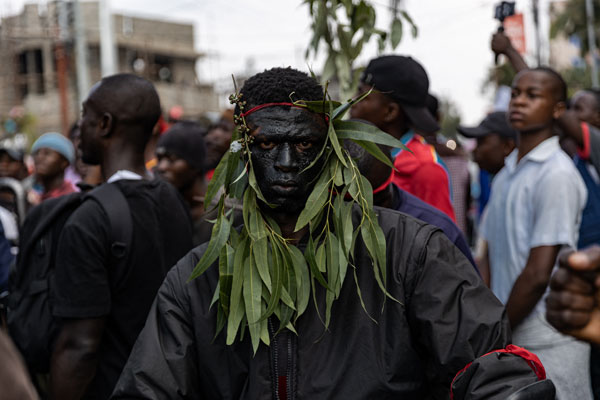DR Congo to combat sectarian 'stigmatisation' amid Rwanda tensions

The Democratic Republic of Congo has pledged to combat stigmatisation and "manhunts," the national broadcaster said Thursday, a day after an anti-Rwanda protest descended into sectarian looting.
Friction between the DRC and its eastern neighbour Rwanda has surged in the past few weeks over the M23 rebel group.
The government in the DRC's capital Kinshasa accuses Rwanda of backing the rebels, a charge that Rwanda has repeatedly denied.
On Wednesday, several thousand people protested against Rwanda in the eastern city of Goma, rushing the border post with the country and later ransacking Rwandan-owned businesses.
According to an AFP reporter present, some protesters also stopped cars to search for Rwandan nationals -- or speakers of the country's national language Kinyarwanda.
The Congolese High Defence Council, which is chaired by the president, has ordered the interior minister and police chief to "take all necessary measures to avoid stigmatisation and manhunts," a government spokesman said.
The council also recommended suspending agreements with Rwanda, spokesman Patrick Muyaya was quoted on DRC's national broadcaster on Thursday as saying.
Relations between Kinshasa and Kigali have been strained since the mass arrival in DRC of Rwandan Hutus accused of slaughtering Tutsis during the 1994 Rwanda genocide.
But relations have nosedived over a recent resurgence on fighting by the M23.
A primarily Congolese Tutsi militia that is one of scores of armed groups in eastern DRC, the M23 leapt to global prominence in 2012 when it captured Goma.
It was forced out shortly afterwards in a joint offensive by UN troops and the Congolese army.
The rebels resumed fighting last November after accusing the Kinshasa government of failing to respect a 2009 agreement under which the army was to incorporate its fighters.
Clashes intensified in March, causing thousands of people to flee, and on Monday the rebels took the trading town of Bunagana.





